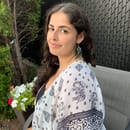Zoey McShane wasn’t yet aware of the fragmented ideas of gender as a young child, though that changed as they began noticing how difficult it was to fit into them.
“It’s only as you get older do you start to like, notice the difference, you get treated in the ways of like your peers and stuff like that.”
McShane, who identifies as a non-binary woman and uses she/they pronouns, explains their womanhood as falling outside of the binary, on a gender spectrum.
“For a lot of people, that’s kind of a jumble of words, but I don’t really view gender as the set concrete male, female. I consider myself nonbinary… But also, I consider myself a transgender woman as, like, I was born male, I was assigned male at birth. However, I’ve transitioned into being more feminine on that nonbinary scale of gender.”
Their expression of womanhood doesn’t rely on the societal standards set out for the binary gender set of male and female. Because of this, McShane says cisgender women, those who continue to identify with their assigned gender at birth, didn’t always make them feel part of the community.
“When I was younger, people referred to me as a guy, people treated me as a guy. And that came with certain privileges. But it also came with certain negatives, because it meant that, when I really wanted to relate to women, sometimes they would not feel like they could relate to me.”
Still, McShane says they always felt a stronger connection to the female identity, and that it has overall been founded on the concept of collective support, simply because of the world in which womanhood must survive.
“The best way I can put it is, women will always cheer on other women just a little bit harder, or women will always hear of the good deeds of other women and care just a little bit more,” she says. “I think that’s what womanhood is, it’s just kind of identifying with, and going like, there are other women out there doing stuff. And I can identify with them their experiences. Not only just their struggle, but their overall general life experience.”
McShane says understanding the diverse experiences of self-identified women everywhere will only develop the antiquated image of what a woman is. Through forming an understanding of womanhood through an intersectional lens that incorporates transgender experiences, we can form as a collective through both our shared and differing experiences, McShane explains.
According to UN Women, “Intersectional feminism centres the voices of those experiencing overlapping, concurrent forms of oppression in order to understand the depths of the inequalities and the relationships among them in any given context.” Through the coinciding of the transgender and feminist movements, the gender-based challenges faced by the overall community are, while deeply troubling, a reminder that womanhood is still perceived as an oppressed identity.
Dr. Katie Bausch, a Carleton University professor of women’s and gender studies, explains that, despite society’s seemingly progressive attitudes towards gender, womanhood continues to fall under a scientific or biological viewpoint.
“Currently, a biologically essentialist understanding of womanhood still dominates in Canada. Meaning that womanhood is often defined by expectations of what a woman’s body should look like and be able to do, with reproduction being at the heart of the definition,” she says. “This begins right at birth when medical caregivers assign “girl” to babies based on expected characteristics such as the lack of a discernable penis, the presence of labia, etcetera.”
Because our society runs under a patriarchal system, Dr. Bausch says that regardless of outward expression within womanhood, all women “are often bound by their marginalization.” As a result of the experiences related to intersecting identities beyond gender, which can include race, sexuality, age, and class, to name a few, being a woman comes in layers, but leads to a greater community through which to address these inequities.
“The experience of being treated as less worthy, less valuable, and less human, is something that women often have in common. What comes out of these varied, but common, experiences, though, are the strong bonds that people form to reject this treatment,” says Dr. Bausch. “Amazing activism has come out of women really listening to each other, giving space for everyone’s experiences, debating, and arguing about ways to move forward, and working together to end patriarchy.”
Intersectional feminism creates greater awareness of how the injustices affecting women can disproportionately affect those who fall within identities or backgrounds that they cannot change, such as being transgender and non-binary. According to a 2019 Statistics Canada report, every six days, a woman in Canada is killed as a result of gender-based violence by an intimate partner. In that same light, a survey conducted by Trans PULSE Canada in the same year found that “three in five transgender women experienced intimate partner violence since the age of 16.”
These gender-based experiences branch off of some women’s relationship to womanhood. Dalia Smith, who is using a pseudonym for anonymity, and, similarly to Zoey, identifies as a non-binary woman, says, “My relationship to womanhood would be that I face the same misogyny and sexism faced by people who identify as women … [they] don’t make a big part of my womanhood, it’s just something that you are reminded of every day.”
Smith explains that her connection to womanhood centres more around her internal perspective, not in relation to any societal understanding. “My version of womanhood is just being me and feeling like me,” she says. “Non-binary woman is just the current label that fits me well and doesn’t put me in a box that demands me to comply to certain gender norms.”
Women come in all forms and face individual experiences of gender-based injustices. “Rejecting women from organizations, activism, [and] community based on a ‘hierarchy of oppressions’ is unproductive and serves only to empower patriarchy,” says Dr. Bausch.



